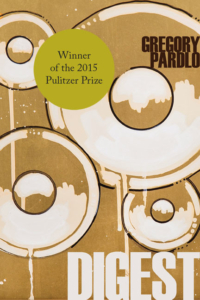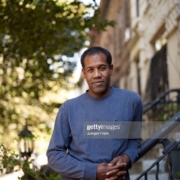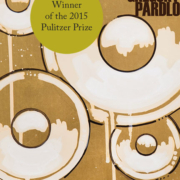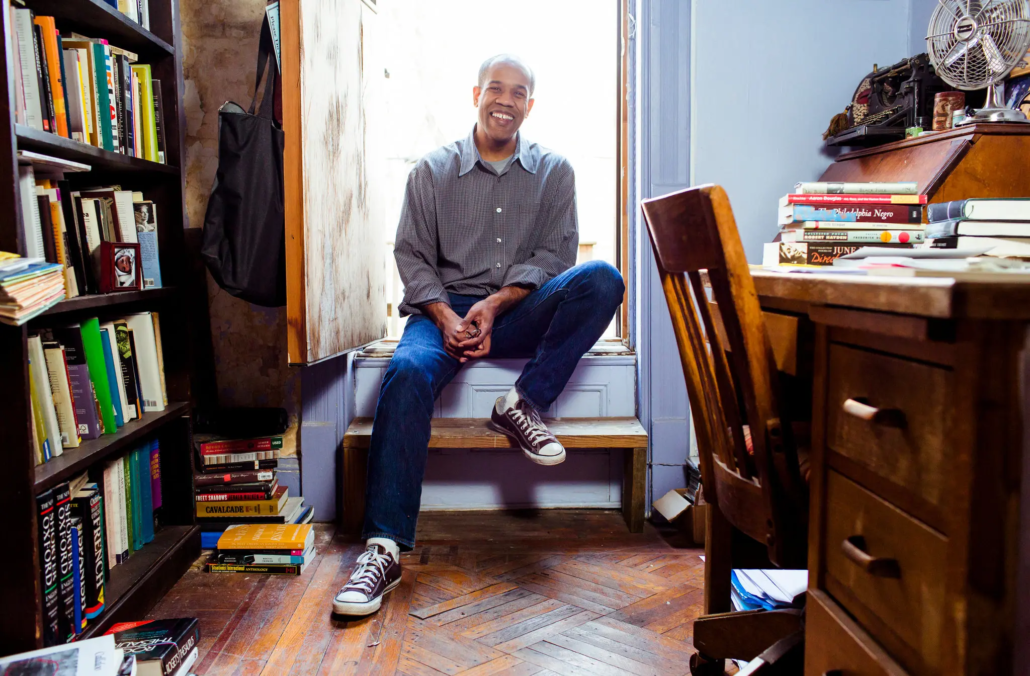It’s National Poetry Month!
Every April I challenge myself to read one poetry book per day—tackling all those books I’ve impulse-bought or been given by friends over the past year. Last year, I went all-out at the blog (see my post about Kathleen Flenniken for a great example), contacting many of the poets and asking questions about how their books were created. This year, I’m scaling down, but I still want to share with you what I’m reading, and at least a poem and some links for each poet. Rather than a review, you might think of these as “appreciations.”
And before I get started on Gregory Pardlo’s Digest, a couple house-keeping announcements for the poets looking for further NaPoWriMo inspiration:
At the blog POETRYisEVERYTHING, bookstore owner and poet Chris Jarmick is sharing a poetry prompt for every day in April.
At The Poetry Department, Judy I. Kleinberg posts poetry news daily—local, national, or international—and she has a calendar for April events: https://thepoetrydepartment.wordpress.com/2022/03/31/get-out-the-calendar/

DIGEST, Gregory Pardlo. Four Way Books, POB 535, Village Station, New York, NY 10014, 2014, 78 pages, www.fourwaybooks.com.
Here’s one you may have heard of, as not only have I blogged about this book before, but Digest was the winner of the 2015 Pulitzer Prize. On the back cover, Campbell McGrath beautifully captures some of my own thoughts about this complex and mind-blowing excursion into literature, philosophy, and the extraordinary domestic: “Gregory Pardlo’s engaged, intelligent poetry, with its exuberant range of cultural and historical reference, feel[s] a bit like stumbling out of the desert to encounter the Nile River. Smart and humane, Digest engages in lyricized textual analysis, playful philosophical exegesis, and satirical syllabi building.”
About that last—Pardlo includes a series of syllabi-like prose(ish) poems that delighted me. I thought of my days as an adjunct at the University of Washington, where each quarter we competed to come up with the most stunning (and increasingly obscure) paragraph describing our upcoming courses.
Ghosts in the Machine: Synergy and the Dialogic System
Self-effacing, the number zero stands austere, a window onto Nature’s
abhorrent force, a hyperborean rebuke to the tropic heat of being. We
might say zero is the perfection of affect, round as a pucker it dallies,
dispassionate, for a kiss. In this course, we will observe our stalwart
and lonely hero, zero, and its intercourse with the number one or,
what Nietzsche refers to as “Dionysiac rapture,” the “vision of mystical
Oneness” symbolizing the root assertion of self-surrender: yes. And
we will study how this primordial union begets the mystery of Zeno’s
arrow stitching the sky across a battlefield, or begets the way sweet
nothings from a random-dialing jailhouse phone might morbidly
prick the pulse. we will consider the connotative spark rattling like a
pinball in the void between two bumpers of denotation, overloading
the light bulb above our heads, or worse, animating anxieties strapped
to the gurney within. That one hand clapping, for example. For
example, the call is coming from inside the house.
The book begins with riffs on home and a lens that tilts both toward childhood and parenthood, and (I admit) those poems were my favorites. The publisher, too, highlights this aspect, ending its description with family:
From Epicurus to Sam Cook, the Daily News to Roots, Digest draws from the present and the past to form an intellectual, American identity. In poems that forge their own styles and strategies, we experience dialogues between the written word and other art forms. Within this dialogue we hear Ben Jonson, we meet police K-9s, and we find children negotiating a sense of the world through a father’s eyes and through their own.
—from the publisher
But. It’s saying far too little about Digest to let you think the book smacks of domestic harmony. A long poem with numbered sections digs deep into philosopher Louis Althusser’s murder of his wife, the sociologist Hélène Rytmann, evoking a deeply troubling intimacy. In another poem, “Copenhagen, 1991,” Pardlo writes, “As adversaries we made good / lovers, made heat where there was little / to hold…” I could go on, but instead, in closing, a few lines more from the poet himself:
from Four Improvisations on Ursa Corregidora
…Once upon a time means once and for always
and for wherever you are and now I’m singing blues
in a bar revealing as much skin as you should
be willing to reveal when you pouring your seed
into the electric element. We are given two names:
one to work like witness protection, and one to carry
mechanically to the grave.
Indeed!
For links to videos, interviews, and more, go to https://fourwaybooks.com/site/gregory-pardlo/.



